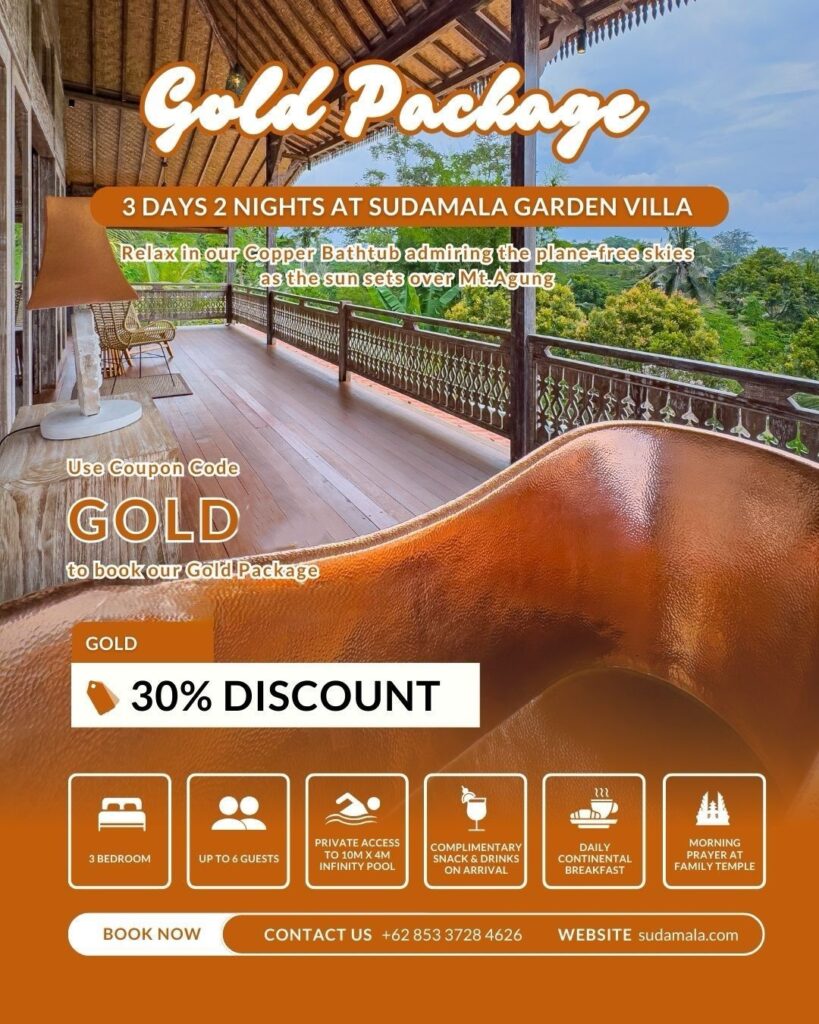Bali—ahh, just saying the name conjures up images of lush jungle, serene beaches, and those iconic Tegallalang Rice Paddies you’ve definitely seen splashed across Instagram. But beyond the postcard-perfect landscapes and dreamy sunsets, there’s a deeper story unfolding—a movement that’s all about sustainability, cultural heritage, and reconnecting with the earth. Welcome to the world of permaculture in Bali.
If you’ve ever found yourself dreaming of a slower, more intentional way of living, this island offers the perfect escape. Whether it’s wandering through an Organic Farmers Market, diving into a Bali cooking class, or immersing yourself in traditional farming methods, Bali invites you to experience a lifestyle where nature and culture exist in perfect harmony.
Discovering the Heart of Bali’s Agricultural Heritage

Let’s talk rice paddies. You can’t visit Bali without marvelling at those endless terraces stretching across the hillsides. But they’re more than just a pretty backdrop—they’re part of an ancient system called Subak, a traditional irrigation method dating back over a thousand years. It’s all based on the Balinese philosophy of Tri Hita Karana, which focuses on harmony between humans, nature, and the divine. Pretty poetic, right?
But here’s the thing—modern farming and mass tourism are putting pressure on these landscapes. Chemical-heavy agriculture is creeping in, and the balance that kept Bali’s ecosystems thriving for centuries is shifting. That’s where permaculture steps in as a modern solution rooted in age-old wisdom.
What is Permaculture, and Why Should You Care?

Permaculture—it’s one of those buzzwords that gets thrown around a lot, but at its core, it is simple: designing agricultural systems that work with nature rather than against it. Think organic farming, zero waste, biodiversity, and a long-term approach to sustainability.
In Bali, permaculture isn’t just a trend—it’s a movement. It blends traditional farming techniques with modern ecological practices to create a future that supports both the land and the communities that depend on it. Whether it’s small-scale organic farms, eco-lodges growing their own food, or Bali cultural tours showcasing sustainable lifestyles, the island is embracing permaculture in a big way.
And the best part? You can get involved.
Immersing Yourself in Bali’s Sustainable Scene
If you’re the kind of traveller who loves meaningful experiences, Bali has plenty to offer beyond your typical sun-and-cocktails itinerary. Here are some ways you can dive into its permaculture and slow-living scene:
Visit an Organic Farmers Market
Forget plastic-wrapped, supermarket produce. Bali’s Organic Farmers Market scene is thriving, filled with stalls piled high with tropical fruit, farm-fresh veggies, and homemade goodies. Grab a smoothie, chat with the farmers, and stock up on ingredients straight from the source.
Join a Bali Cooking Class
What better way to understand sustainable food than by cooking it yourself? A bali cooking class doesn’t just teach you how to whip up mouth-watering Indonesian dishes—it takes you to local organic farms, lets you handpick fresh ingredients, and gives you a taste of how traditional Balinese cuisine celebrates locally sourced, seasonal produce.
Explore the Tegallalang Rice Paddies Through a Cultural Tour
Rather than just snapping a few pictures, why not join a guided tour that dives into the history and sustainable practices behind Bali’s most iconic landscape? You’ll learn how the Subak system works, meet local farmers, and even try your hand at planting rice yourself.
Stay at a Permaculture Retreat
 Fancy waking up to the sound of birds rather than honking traffic? Bali is home to eco-lodges and permaculture retreats where you can fully immerse yourself in a sustainable lifestyle. From farm-to-table dining to learning about regenerative farming, these places offer a completely different perspective on luxury travel—one that’s grounded in nature, mindfulness, and slow living.
Fancy waking up to the sound of birds rather than honking traffic? Bali is home to eco-lodges and permaculture retreats where you can fully immerse yourself in a sustainable lifestyle. From farm-to-table dining to learning about regenerative farming, these places offer a completely different perspective on luxury travel—one that’s grounded in nature, mindfulness, and slow living.
Slow Living in Bali: A Lifestyle Beyond the Holidays
The best thing about permaculture in Bali is that it goes beyond just farming. It’s about embracing a slower, more intentional way of life, one that prioritizes quality over quantity, connection over consumption.
Bali’s Slow Living scene is growing, with wellness retreats, holistic cafes, and conscious travel experiences encouraging visitors to pause, reflect, and reconnect with nature. Whether it’s practicing yoga in the rice fields, learning traditional crafts from local artisans, or simply choosing eco-conscious accommodations, the island invites you to rethink how you travel.
And let’s be honest—after a few weeks in Bali, sipping fresh coconut water, browsing markets, and living in sync with the rhythms of nature, you’ll never look at city life the same way again.
A Future Rooted in Tradition and Sustainability
As Bali continues to balance tourism and environmental conservation, permaculture is playing a vital role in shaping its future. Whether you’re here for a short holiday or dreaming of relocating to an island paradise, supporting sustainable initiatives, organic farming, and slow travel experiences can help ensure Bali’s incredible natural and cultural heritage thrives for generations to come.
So next time you find yourself wandering through those breathtaking rice paddies, sipping on a locally grown coffee, or enjoying a farm-to-table meal, take a moment to appreciate the wisdom and sustainability woven into every part of Balinese life.
Who knows? You might just leave with a fresh perspective on travel, food, and the way we interact with the world around us.
